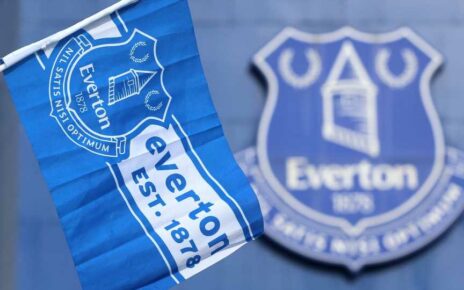When throbbing pain developed in his shoulder, Chris Rowley, the only graduate of the U.S. Military Academy to play in Major League Baseball, reacted as he always does when challenged. He did not blink.
Rowley was 30 and trying to get back to the majors when he realized his improbable journey had run its course.
Disappointment over being bypassed in all 40 rounds of the amateur baseball draft after a sterling career at West Point hadn’t stopped him. Nor had a two-year hiatus from baseball while he served as a first lieutenant in the U.S. Army. In his second season after that hiatus he attended an M.L.B. game for the first time in his life and was the starting — and winning — pitcher for the Toronto Blue Jays.
But rotator cuff surgery is a life-changer, and there are many directions it can take a pitcher.
Typically, law school is not one of them.
“Frankly, I grew tired of seeing my colleagues in minor league baseball go through the things they were going through,” Rowley, now 32, said last month while wrapping up his second year at the University of Colorado Law School. “A lot of my goals of going to law school have been accomplished by the minor leaguers unionizing. But the fight is not over. It never will be. That’s the inherent nature of labor negotiations.”
To help his atypical path out of a sport in which few players graduate from college, let alone earn law degrees, Rowley was awarded the Michael Weiner Scholarship for Labor Studies, which was started by the M.L.B. Players Trust after the death of Weiner, an executive director of the M.L.B. Players Association who died with brain cancer at age 51 in 2013. The program provides $50,000 a year for up to five graduate students or law school students seeking to improve the lives of workers.
Rowley never met Weiner but understands his impact and legacy.
“I’ve been fortunate enough to be a beneficiary of his infectious leadership both as a player and as a law student,” Rowley said. “So while I never met him, my work is greatly influenced by his in both conscious and subconscious ways.”
It was the spring of 2020 when Rowley’s shoulder gave out and the pandemic moved in. He was a free agent facing the tough task of getting back to the majors when M.L.B. canceled the minor league season. Suddenly, there would be no paychecks. While most minor leaguers make very little money, some, such as Rowley, were expected to make more because of their major league service time.
“This group was especially vulnerable because oftentimes these are older minor leaguers with spouses, children and homes,” Rowley said. “And we make a lot of financial decisions in life based on our expected income. When something like Covid happens and that’s taken away from you, that can leave devastating circumstances for people with spouses and children.”
Rowley reached out to the nonprofit group Advocates for Minor Leaguers while researching his rights. He met its director, Harry Marino, who would go on to work for M.L.B.’s players’ union. Rowley volunteered for hours of outreach during the initial organizing phase.
“What started with very tangible, practical questions of contract interpretation within a matter of minutes had turned into a much broader conversation about the system, the inequities of the system and what might be done to fix that,” Marino said. “I thought Chris’s interest in systemic change was pretty unique.”
When M.L.B. declined one of the proposals to pay minor leaguers during the pandemic shutdown, Rowley said: “I felt pretty aggrieved because it was so little money and it was so clear that players would find themselves in financial destitution. And the league said, ‘We don’t care.’ It was emblematic of what I’ve seen in the minor leagues.”
So he took the Law School Admission Test and extended his lifelong pattern of landing — and thriving — in unexpected places.
A Georgia native, Rowley was recruited out of high school by Mercer University but chose West Point because Army promised him the chance to start, while Mercer wanted to use him as a reliever. When all 30 teams bypassed him in the 2013 amateur draft — in which 1,216 players were selected — the right-handed Rowley signed a minor league deal with Toronto and reported to the rookie-level Gulf Coast League.
There, Rowley said, he was told that a Jays executive had said he was signed only to save the arms of the team’s draft picks. “They had no intention of my professional career lasting beyond that summer,” Rowley said.
Instead, he was dominant in nine games, throwing 32⅔ innings and striking out 39 batters with a tiny 0.673 WHIP (walks plus hits divided by innings pitched). It was enough to pique the Blue Jays’ interest just before Rowley had to take a leave of absence to fulfill his military commitment.
“I’ll tell you what, the guy had some crazy numbers that first year in the G.C.L.,” Toronto catcher Danny Jansen said. “Sinker, slider, I remember being behind the plate for almost all of them and he was a lot of fun to catch. It was fascinating because from West Point that doesn’t happen.”
Rowley was deployed to Bulgaria after Russia invaded Crimea, a precursor to the war in Ukraine, and spent most of 2015 there. He was assigned to the Individual Ready Reserve with a primary goal, he said, of “shaping the battlefield to keep our guys safe.”
There was a heavy Russian influence in Bulgaria, Rowley said, and though he did not see combat, he was physically assaulted in Sofia, the capital, “by a man who very clearly identified me as an American.”
After missing the 2014 and 2015 seasons, Rowley, with the approval of his battalion brigade commanders, submitted a resignation of his active duty commission. It was “based on the premise that we were overstaffed, and I felt my service could be better allocated pursuing a professional baseball career,” Rowley said.
During his time in active service, he kept his arm in shape by throwing with one of his old Army teammates. He had not been able to throw from a mound for two years, but he had a good spring in 2016 and a year later, on Aug. 12, 2017, he got his call-up to Toronto and proceeded to hold Pittsburgh to one run over five and a third innings as the Blue Jays beat the Pirates, 7-2, in front of 46,179 at Rogers Centre.

‘A lot of my goals of going to law school have been accomplished by the minor leaguers unionizing. But the fight is not over. It never will be. That’s the inherent nature of labor negotiations.’
Chris Rowley, law student and former major leaguer.
It was a Saturday afternoon, his family was there and he followed the advice of the Jays’ pitching coach, Pete Walker: Look up. In his own debut, Walker hadn’t. So Rowley walked out to the mound, picked up the rosin bag, made sure to look around at the nearly 50,000 people and had his “oh my goodness” moment. Then he breathed, locked in and threw a first-pitch strike to Starling Marte.
It was his only big-league victory. He went 1-2 with a 6.75 E.R.A. over six games — three starts — that season. The Jays called him back for two relief appearances in 2018, but he went 0-1 with a 40.50 E.R.A. He doesn’t think the bullpen suited him well but, as he said, “I understood where I was in the pecking order.” Texas claimed him off waivers late in 2018, then it was on to the San Diego and Minnesota systems.
“He was always very passionate about what the minor leagues were like and that lack of what was available, that lifestyle,” said Tim Mayza, a Toronto reliever who will be a groomsman in Rowley’s wedding this winter. “Yeah, we’re professional athletes, but the minor leagues is a very grindy lifestyle, packing guys into rooms, you’ve got air mattresses and stuff like that. He was always wanting to make conditions better. You could tell he had a passion for wanting the next group to have better conditions than the current guys.”
Marino, who recommended Rowley for the Michael Weiner scholarship, thinks his friend brings “a unique mix of experiences but, more than that, to have the level of success he’s had in different areas is unique, and I think what you see from service to his country to making it to the major leagues to now pursuing a career in the law is a level of commitment that it takes in each of those areas that is really unique and sort of exemplary.”
Rowley has an article he expects to be published in the University of Colorado Law Review in the spring of 2024. The working title: “It’s Past Time: Unionization and Labor Management in Minor League Baseball.”
Source: Read Full Article

